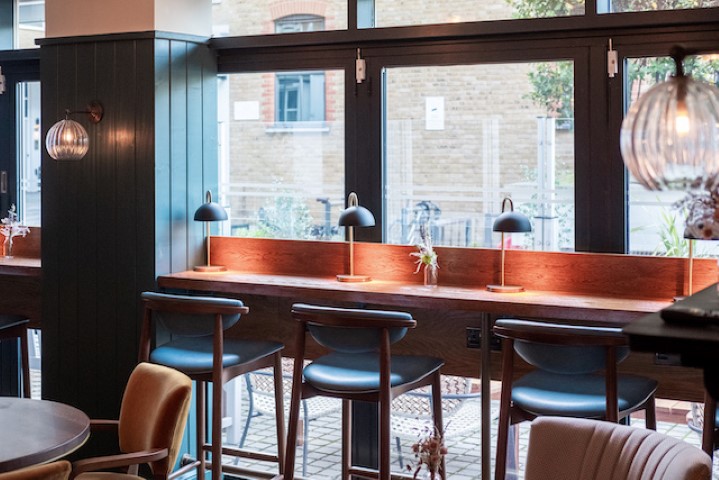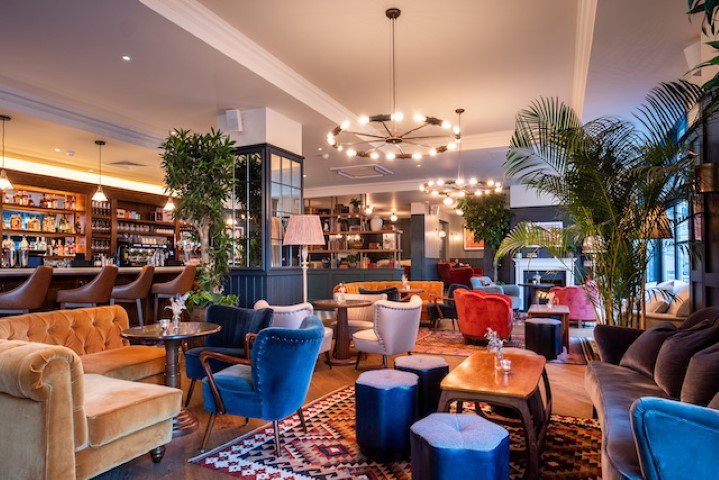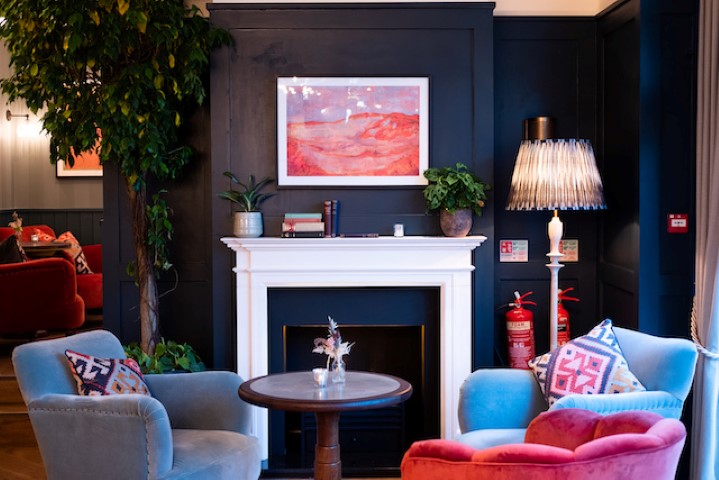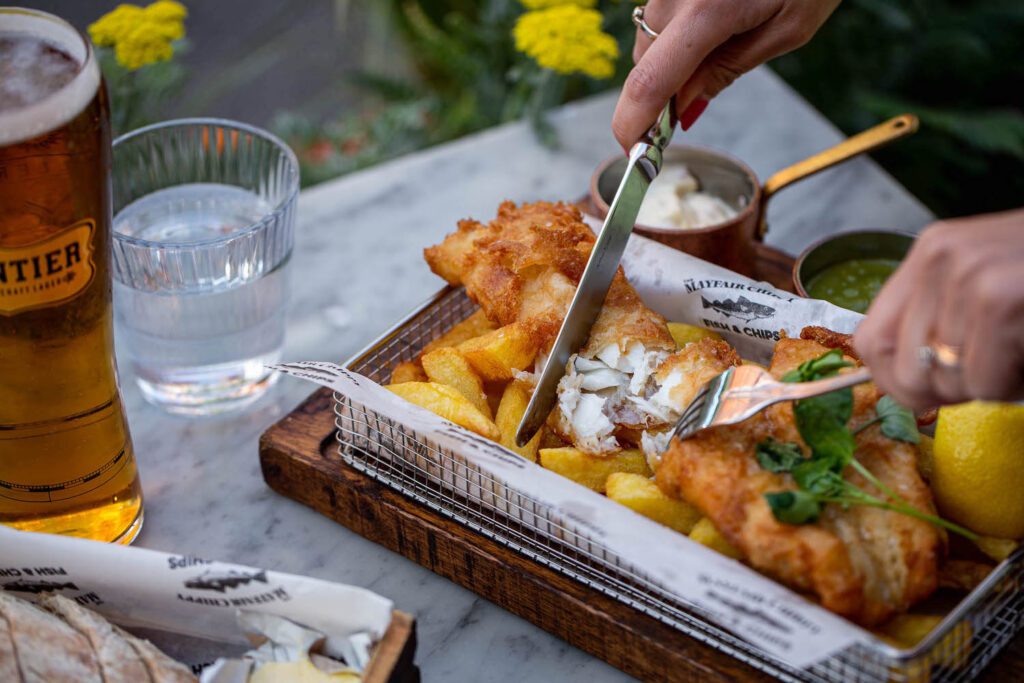There’s a new player in London’s café culture scene and its flourishing under the name Coppa Club. In late 2021, it daringly opened its doors for riverside dining along the Thames in London’s well-heeled Putney neighbourhood and is steadily carving a name for itself. The café, bar, restaurant and lounge concept is the brand’s second London opening, and the ninth in the United Kingdom.
Coppa Club Ambiance
I visited Coppa Club Putney on a wintery Saturday evening and found myself submerged in a bustling, jolly atmosphere, teeming with excitement. Located on the riverfront between Putney and Fulham Railway bridges, and with enviable views over the Thames, Coppa Club Putney welcomed me like a hug from a friend.
Replacing the trend for minimalist, clinical, all-white look, Coppa Club was invitingly decked out with leafy palms in the corners, soft lampshades radiating warmth, and painted walls in earthy colours that harmonised with wood panel accents. The complementary textures and hues created an ambience befitting of a private members’ club, or the home of a good friend.
In the sophisticated-yet-relaxed setting of Coppa Club Putney, guests can hold business meetings and work from a quiet table, enjoy a leisurely brunch with friends, or sip coffee and read a book all day. When evening comes, Coppa Club Putney exudes a lounge-like feel, with dimmed lights, crackling fireplaces, and a full-service bar.
There’s a snug encased with books, offering private spot for cosy chats over a flat white or glass of Gavi di Gavi.
Coppa Club Food & Wine
Though you can graze anywhere you please, the dining area is set within the conservatory, with sliding doors to let in fresh air on London’s summer days. The indoor-outdoor feel of Coppa Club Putney is accentuated by its terrace and the three iconic glass igloos, a lovely spot for a birthday dinner or friends reunion.
Coppa Club Putney is open for breakfast, lunch, and dinner, and for late night snacking too. The menu takes its cue from British and Mediterranean classics and is as varied as it is accommodating to dietary needs. Whether you’re craving nibbles and sharing plates, such as an antipasti plates, salmon carpaccio and olives, or want something more substantial such as burger, sourdough pizza, or grilled chicken, you won’t go hungry.
We enjoyed the Devon crab salad, fresh and full of flavour, and the seared king prawns, with a touch of spice, served on chunky crusty bread. Our 10oz dry aged sirloin was perfectly cooked to order and accompanied by truffle cream, portobello mushrooms, and skinny fries. We also tried the corn-fed half chicken with Piri-Piri sauce and pan roasted spouting broccoli.
The tempting dessert menu included an apple and pear crumble smothered with Bird’s custard, conjuring up memories of childhood. The sticky toffee pudding with crushed honeycomb vanilla ice cream and toffee sauce was equally scrumptious.
Walk-ins are welcome but the igloos require a reservation and special menus are served. Ask ahead for details.
Coppa Club Coziness
After dinner, we moved to the lounge for coffee. Here, we joined the company of a Labrador, Cockapoo and a Border Collier relaxing at the feet of their owners, while couples sipped cocktails on cozy sofas by the fire.
Coppa Club brags of its home-away-from-home ethos and it’s spot on. With its heaps of atmosphere punctuated by a clubby yet casual feel, Coppa Club Putney feels like a harbinger of the post-pandemic working, socializing and casual dining spaces that people now want.
Based on its popularity, it seems as if it won’t be long before a Coppa Club arrives in a neighbourhood near you too.
***
BeSeeingYou In: London
Good to Know: British sculptor Alan Thornhill lived and worked in Putney for many years and his studio still remains
WOW! Factor: Since the second half of the 19th century, Putney has been one of the most significant centres for rowing in the United Kingdom
Tip: The Putney Sculpture Trail features nine sculptures by Alan Thornhill that are on permanent public display along the south side of the river, on either side of Putney Bridge.
Author bio: Jane Wilson















